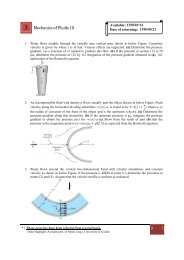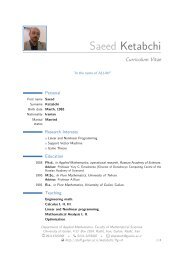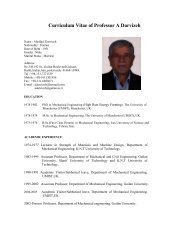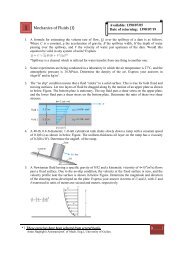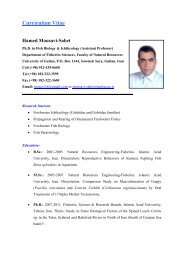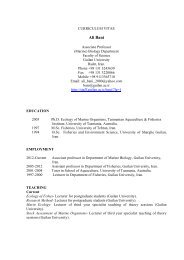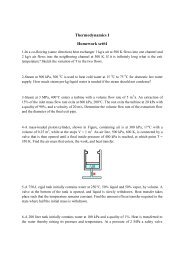Medical Tourism in Developing Countries
Medical Tourism in Developing Countries
Medical Tourism in Developing Countries
- No tags were found...
You also want an ePaper? Increase the reach of your titles
YUMPU automatically turns print PDFs into web optimized ePapers that Google loves.
166 ● <strong>Medical</strong> <strong>Tourism</strong> <strong>in</strong> Develop<strong>in</strong>g <strong>Countries</strong>decrease <strong>in</strong> revenue of American hospitals is further re<strong>in</strong>forced by thedecreased demand by foreign patients. Some of those patients have substitutedU.S. medical care for other alternatives, perhaps because they arecloser or more culturally compatible. Others have been affected by post–September 11 regulations that have made travel to the United States difficult(such as Boston’s teach<strong>in</strong>g hospitals that earned much revenue from thenow discont<strong>in</strong>ued Saudi Arabian programs to treat patients <strong>in</strong> the UnitedStates. 103 ).In addition to decreas<strong>in</strong>g the revenues of some hospitals, medical tourismwill lead to a redistribution among medical specialties with<strong>in</strong> any givenhospital. The cl<strong>in</strong>ical procedures most heavily promoted by develop<strong>in</strong>gcountries’ cl<strong>in</strong>ics and most actively consumed by Americans and Europeansare elective <strong>in</strong> nature. They <strong>in</strong>clude plastic surgery and dental work. Theyare also the most profitable, regardless of whether they are provided <strong>in</strong>Bangkok or Baltimore, Manila or Miami. In multispecialty medical practices,and particularly <strong>in</strong> U.S. academic medical centers, there is significantsubsidization of primary medical care services by the procedure-based specialties.In American university hospitals, expensive procedures such assurgery often subsidize family care and preventive medic<strong>in</strong>e departments.By embark<strong>in</strong>g on medical tourism, Americans will <strong>in</strong>creas<strong>in</strong>gly purchase themost profitable medical procedures from offshore suppliers. One result: afurther weaken<strong>in</strong>g of the U.S. primary care system, with even fewerresources to implement aggressively the preventive practices needed toreduce downstream medical costs from chronic diseases such as diabetes,heart disease, et cetera.Bottom l<strong>in</strong>e: the reality of medical tourism calls for an evaluation of therelative role of specialties <strong>in</strong> American hospitals as well as the nature anddirection of future capacity expansions.Manpower ConsiderationsWhen Western patients substitute domestic health care for <strong>in</strong>ternationalcare, their actions will have an effect on source-country medical labor markets.The composition of medical manpower supply is bound to change forthe follow<strong>in</strong>g reasons. First, foreign medical and nurs<strong>in</strong>g graduates, animportant component of the Western medical labor supply, will have newoptions as a result of medical tourism. As career opportunities <strong>in</strong> their homecountries improve (due to the expansion of medical <strong>in</strong>dustries), emigrat<strong>in</strong>gto the United States or stay<strong>in</strong>g back after the conclusion of their tra<strong>in</strong><strong>in</strong>gabroad will seem less and less attractive. They will stay at home or returnto their homes to partake <strong>in</strong> the ris<strong>in</strong>g medical tourism <strong>in</strong>dustry and thus



